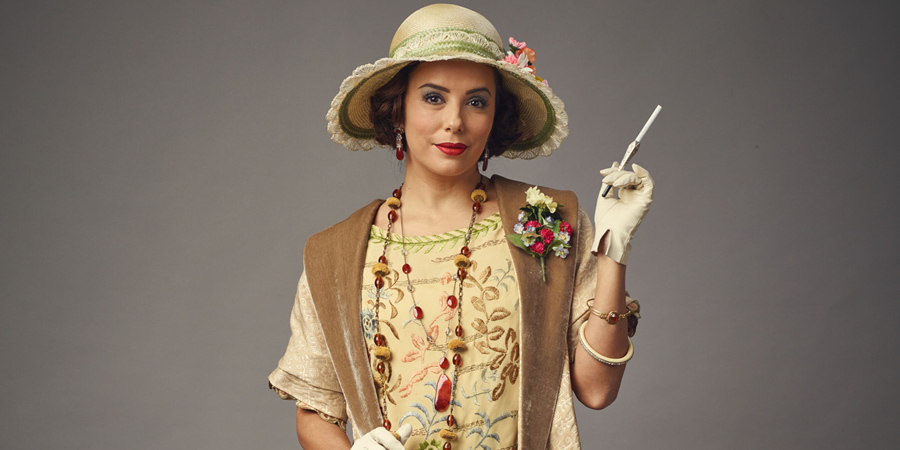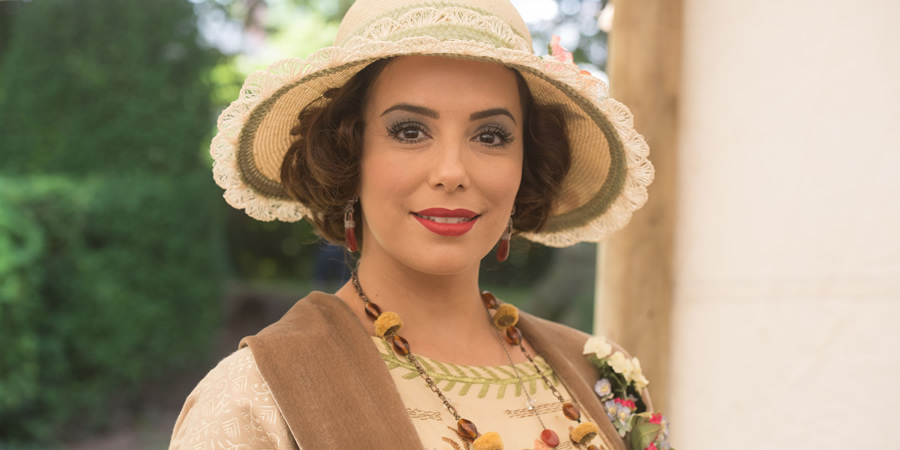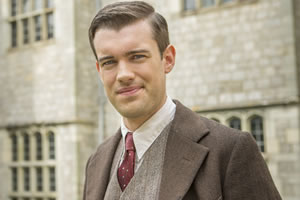Eva Longoria interview

Desperate Housewives star Eva Longoria steps into the role of Margot Beste-Chetwynde...
How did you get involved in the project?
Growing up in America I wasn't familiar with the novels. But me and Jack have the same agent, and so that's kind of how we were made aware of the project.
I've always been dying to do a period piece, I've always wanted to do something with the BBC and I've always wanted to do something in the UK. So when this came up it felt like it was written for me, I was like: "who else would play this part?!"
How was the filming process?
You know, from the first moment I stepped on set I knew I was surrounded by geniuses. Between Jack and David Suchet and Vincent Franklin and Douglas Hodge - they're just amazing, amazing actors and great comedians. If you're not paying attention you'll miss the joke. It's so clever and it's so well written by James Wood.
Was there anyone you most enjoyed filming scenes with?
I had a lot of scenes with David Suchet. I remember walking on set and Jack's like: "David's a really big deal." He's such a great well respected actor that I said: "Oh my gosh, I'm so terrified to have a scene with him because I think he's going to eat me up!"
But he was lovely, his character is so inferior to mine that he immediately put me at ease. And then Jack and I have so many scenes together. He ends up falling in love with me - not so much me with him!
The other thing I was really looking forward to was shooting in Wales. I'd never been to Wales and because this is in the 1930s and it takes place in a school there were some gorgeous locations we shot at. Castle after castle, and manor after manor.

What's your take on Margot?
What I loved about Margot in the scripts was that she's a feminist, she's a successful wealthy woman in a time in which women didn't have a lot of power and rights.
In the novel she is way more malicious but in our adaptation you root for her, you understand her. She's not really malicious, she's just really true to herself.
Do you think she loves Paul?
I think she loves herself more. I think Margot only loves herself and she gets bored really quickly so she may love him in a moment, but then she just moves on. She collects people and then discards them and just wants to move on to something more exciting.
Did you feel there was any sort of need to update your character's behaviour for a modern audience?
What's so great about this adaptation is even though it's a period piece it's totally contemporary in its themes. There's love, there's friendship, there's loyalty, there's disappointment, there's happiness and I think when you deal with universal themes in life the time period doesn't really matter because that's the human spirit, we're all going to experience these things for centuries to come.
What makes Margot stand out among the characters in the way she does?
Oh my gosh, Margot is the colour in this series. The skies are grey, the men wear grey. And then here comes Margot with her fabulousness and her hats and her colour and her dresses and her jewels. I spoke to Guillem the director and he said: "I just want her to be a pop of colour."
What do you think Evelyn Waugh might make of this adaptation?
I think he would love the adaptation. I think that we've really honoured it in a way that only television can. I think television does such a great job of creating a world that you can immediately be invested in and you immediately fall in love with all of these characters. Plus, I think the time period in which we're talking about - the post-war societal differences, the haves and the have-nots - it's so reflective of what we're going through today in many countries.

